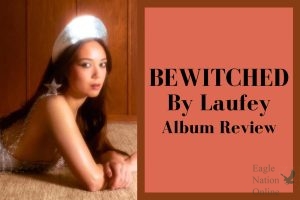Illness, death linked to e-cigarette use, new policy stops migrants seeking asylum

Catherine Jackson and Renee Watters
Publishing every Friday, “The Top 2” recaps the two most notable and important stories from the week (Saturday-Thursday). Assistant Editor Ryan Stanley covers topics ranging from issues in the U.S. to problems worldwide. For more information on stories, refer to the embedded links within the article.
September 13, 2019
1. Vaping-related deaths reached six on Tuesday with symptoms relating to pulmonary illness. More than 450 cases of vaping-related illnesses are currently spread across 33 states. The Trump Administration responded by announcing a ban on the majority of flavored e-cigarette pods. The announcement came just days after the Food and Drug Administration issued Juul Labs a warning for illegally marketing their products.
Why this matters
A 17-year old from Tyler, Texas, is in the hospital for symptoms matching other vaping illnesses across the country. Countless teenagers use vape products, which are now turning on their users because of harmful chemical exposure, such as Vitamin E. The Centers for Disease Control recommends people to stop using vaping products while the investigation into the cause of the illnesses is ongoing.
2. The Supreme Court backed a Trump Administration policy on Wednesday to bar current asylum seekers. Announced in July, the rule forces migrants to seek asylum in ‘pass through‘ countries like Mexico before reaching the United States. This stops a majority of the 811,016 people who are currently detained at the border from attaining asylum applications.
Why this matters
Almost 590,000 of the 811,016 people detained at the south-western border are from El Salvador, Guatemala, and Honduras – all of which are countries where migrants pass through Mexico and will now need to claim asylum there first. Arguments have sparked over the policy in relation to U.S. Code § 1158, which states “Any alien who is physically present in the United States or who arrives in the United States (whether or not at a designated port of arrival and including an alien who is brought to the United States after having been interdicted in international or United States waters), irrespective of such alien’s status, may apply for asylum in accordance with this section or, where applicable, section 1225(b) of this title.”
Notable mention: “For the first time, most new working-age hires in the U.S. are people of color“




















